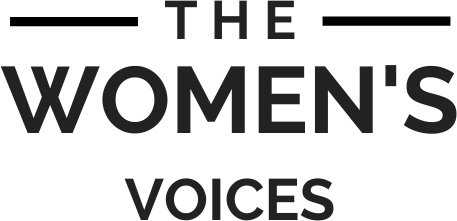“Never accept ‘be pretty and shut up.’” That’s the message shared by Delphine Viguier-Hovasse, Managing Director of L’Oréal Paris, Agathe Bousquet, President of Publicis, Reem Kherici, director and actress and Cindy Bruna, model, at the Women’s Forum 2024. Together, they share their experiences to encourage women to assert themselves in a society where the female image is often confined to the “male gaze.”
Creative industries like fashion or cinema remain predominantly male-dominated. “96% of movies are directed by men,” notes Reem Kherici. The goal of this session is to explore how women—whether models, actresses, writers, or producers—can gain recognition and respect in their fields.
Making Diversity Visible
“We want to make women visible,” says Delphine Viguier-Hovasse proudly, who heads L’Oréal Paris, the first beauty brand to sign a model over 70. “We try to represent diverse women of body type, color, age…” Visibility is key, she emphasizes.
“We try to show women in area where they’re not expected,” she explains. “We want more women behind the camera; we give a prize to young female being a director at “Festival de Cannes” (…) we want more women in science, so we created ‘For Women in Science’ with UNESCO.”
“Girls are growing up, looking at TV and magazines. They need to feel represented and seen,” adds Cindy Bruna, model and ambassador for L’Oréal Paris. Fashion is moving toward a more “inclusive” style, yet only 31% of French people feel represented in fashion brand campaigns, according to FashionNetwork. Cindy Bruna recalls, “I started my career knowing that my skin color was an issue. They wanted me to straighten my hair all the time because my curls didn’t fit beauty standards. For years, I thought it was my voice telling me that my curls weren’t beautiful… That’s why diversity and representations are so important.”

Challenging Stereotypes
“The most important is not to appear, it’s the way we act” says Agathe Bousquet, President of Publicis. The mere number of women on screen isn’t enough to change their image. “What’s important is what role they play.” Although women appear more frequently than men, especially in advertising, their visibility won’t improve if they’re limited to stereotypical roles.

In cinema, for example, female characters are often reduced to the “Smurfette Syndrome.” Unlike male characters, who each have unique traits (the handy Smurf, the poet, the jokester, etc.), Smurfette is simply “the woman.” Lacking narrative depth and complexity compared to male protagonists, characters with this syndrome exist only for and through men. This reduces female characters to stereotypes: they are wives, assistants, damsels in distress, or femme fatales.
“It’s crucial to be a feminist and to defend our vision of women,” emphasizes Reem Kherici. The director confides, “At first, I didn’t realize that I have a role. I have a voice, and that voice comes with responsibilities.” Women deserve “strong and memorable scenes” just as much as men do. “We need female writers and directors to bring their point of view and perception.”

Failures as Stepping Stones to Success
“You learn nothing from success, (we learn from failure)” says Delphine Viguier-Hovasse. “Every beautiful and rich woman, at the beginning have failed.” Eva Longoria, for instance, was once judged as “too Mexican” with a “bad accent” before becoming “one of the most seen on the screen.” Cindy Bruna faced numerous rejections before becoming the first Black woman to walk for Calvin Klein at Fashion Week. Reem Kherici persevered for years before securing the largest budget ever granted to a female producer. These women’s journeys prove that resilience is essential to success.
Francesca Donner, moderator for this session and founder of The Persistent, joins Agathe Bousquet, Cindy Bruna, Reem Kherici, and Delphine Viguier-Hovasse in highlighting the value of persistence.

“A winner is a loser that has been trying once again,” says Delphine Viguier-Hovasse. Every failure strengthens determination and provides the experience needed to advance. The L’Oréal Paris director advises, “You have to be economically and financially independent to be strong,” reminding us that such autonomy is essential to overcoming challenges and building a position of strength in an unequal world.


